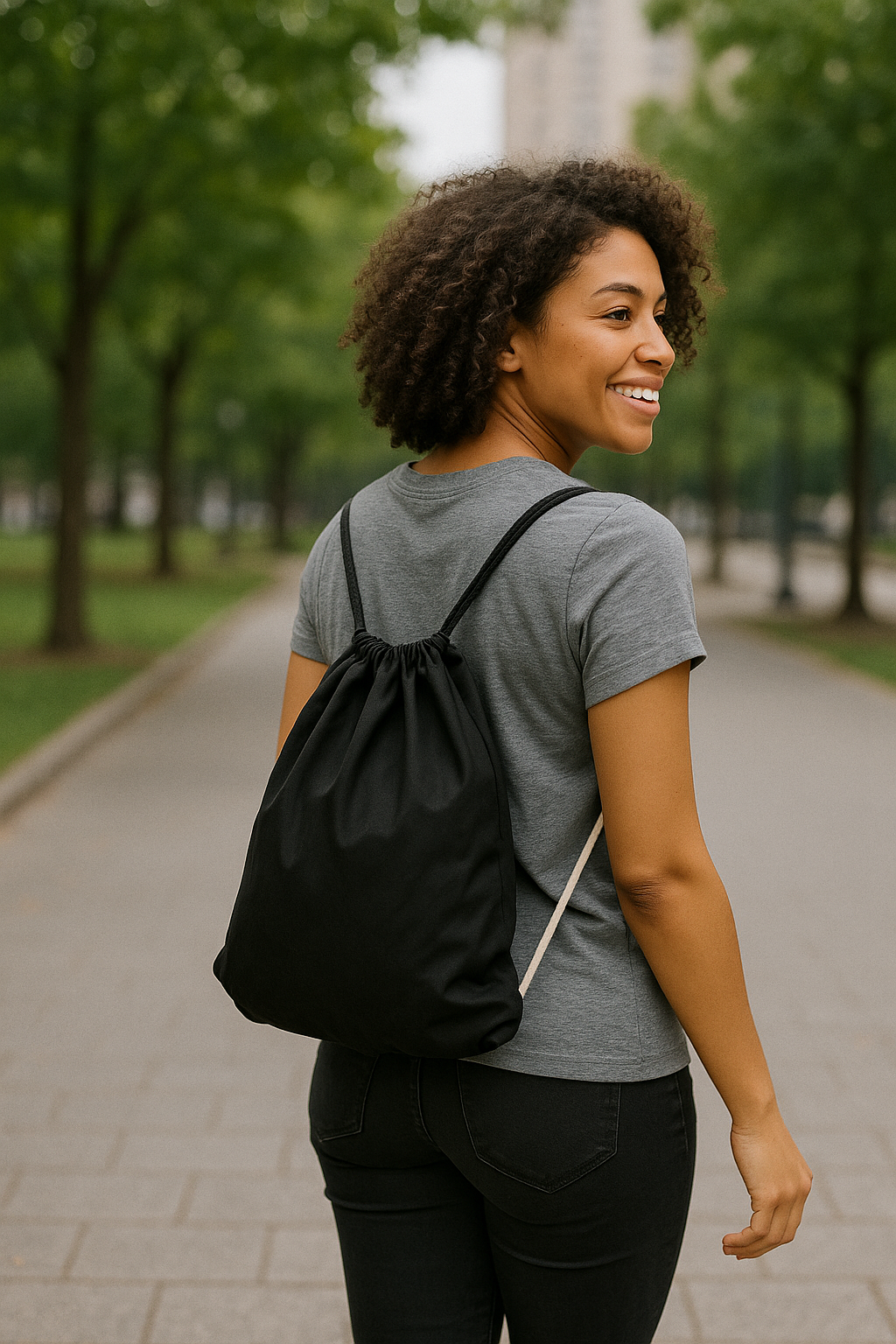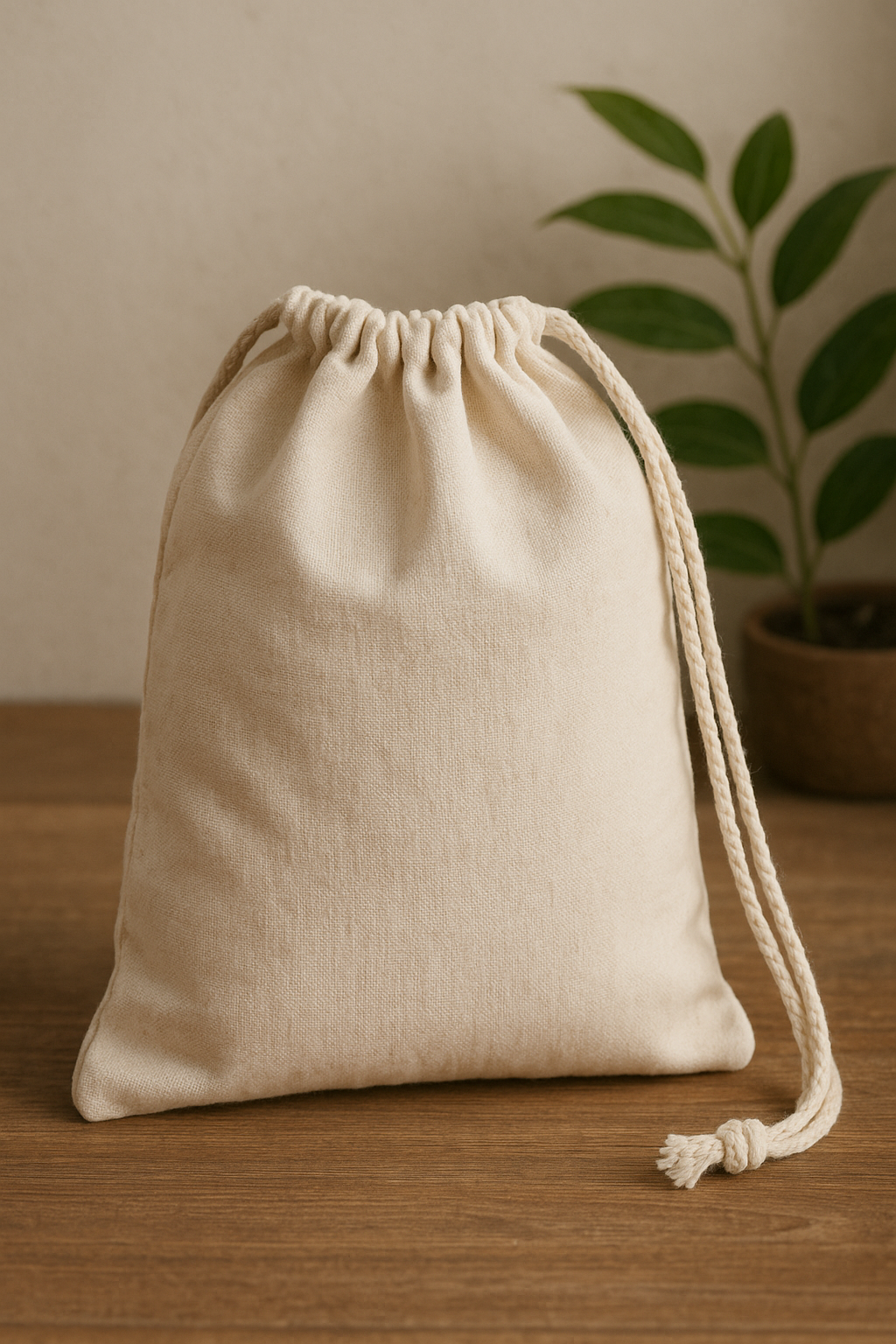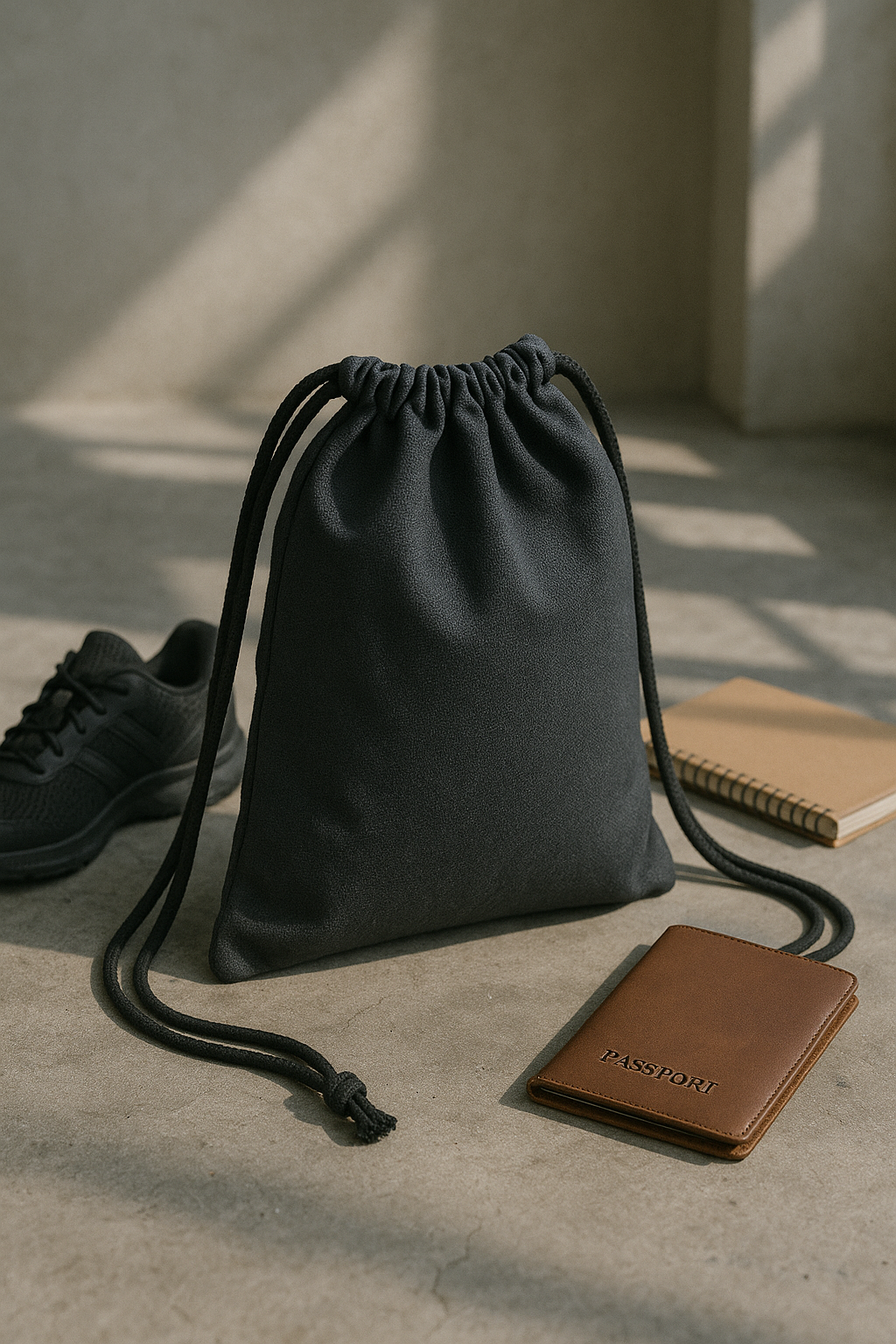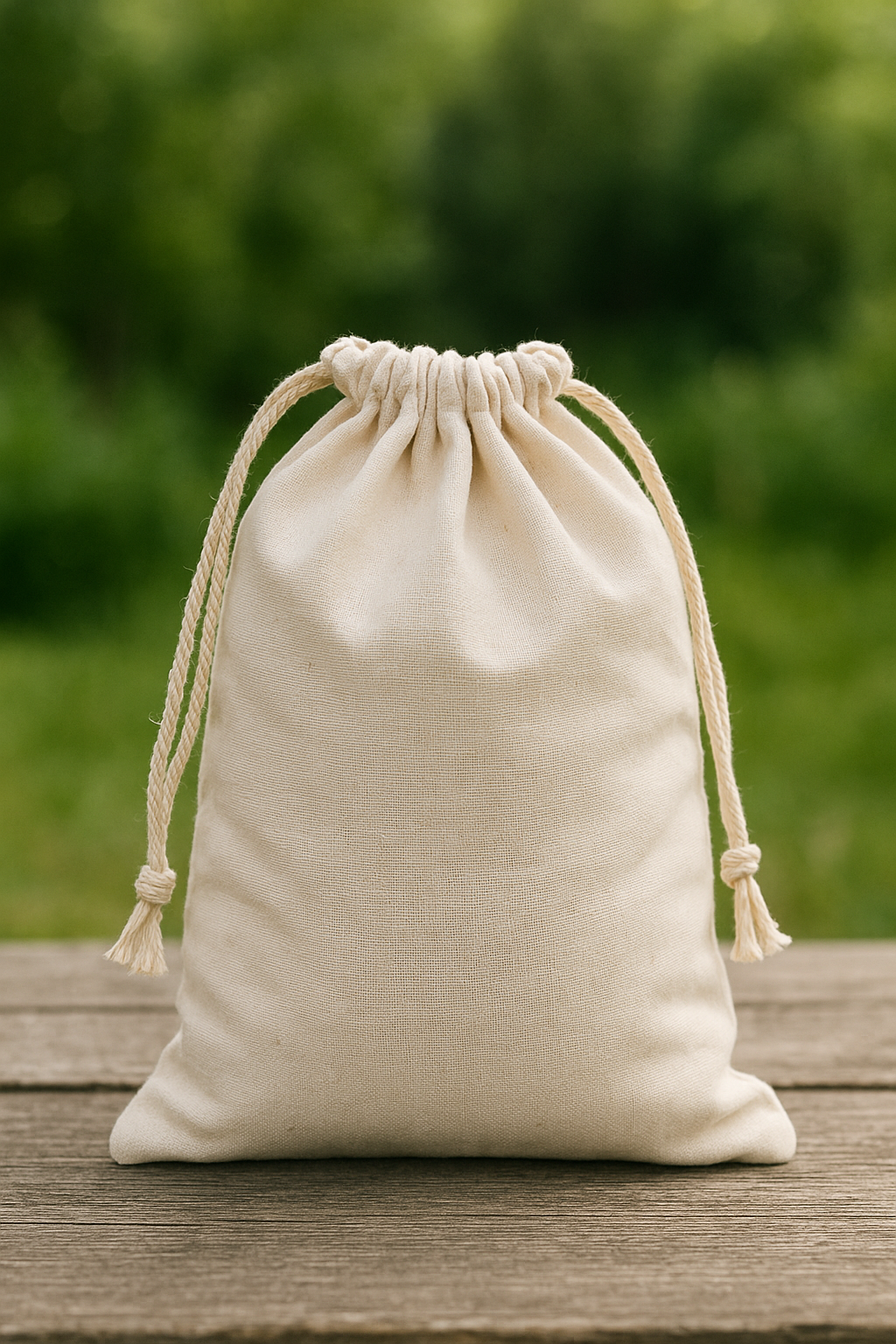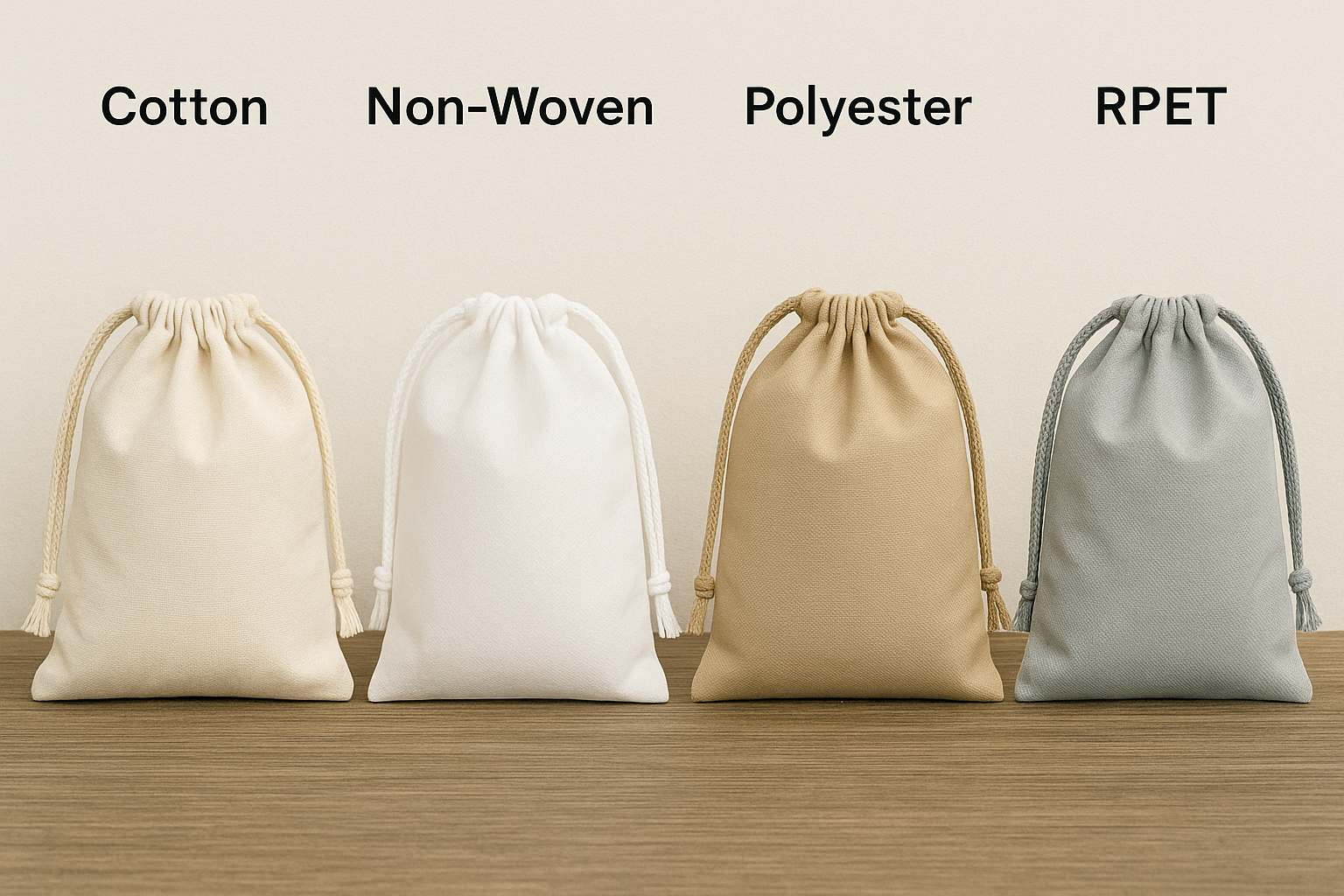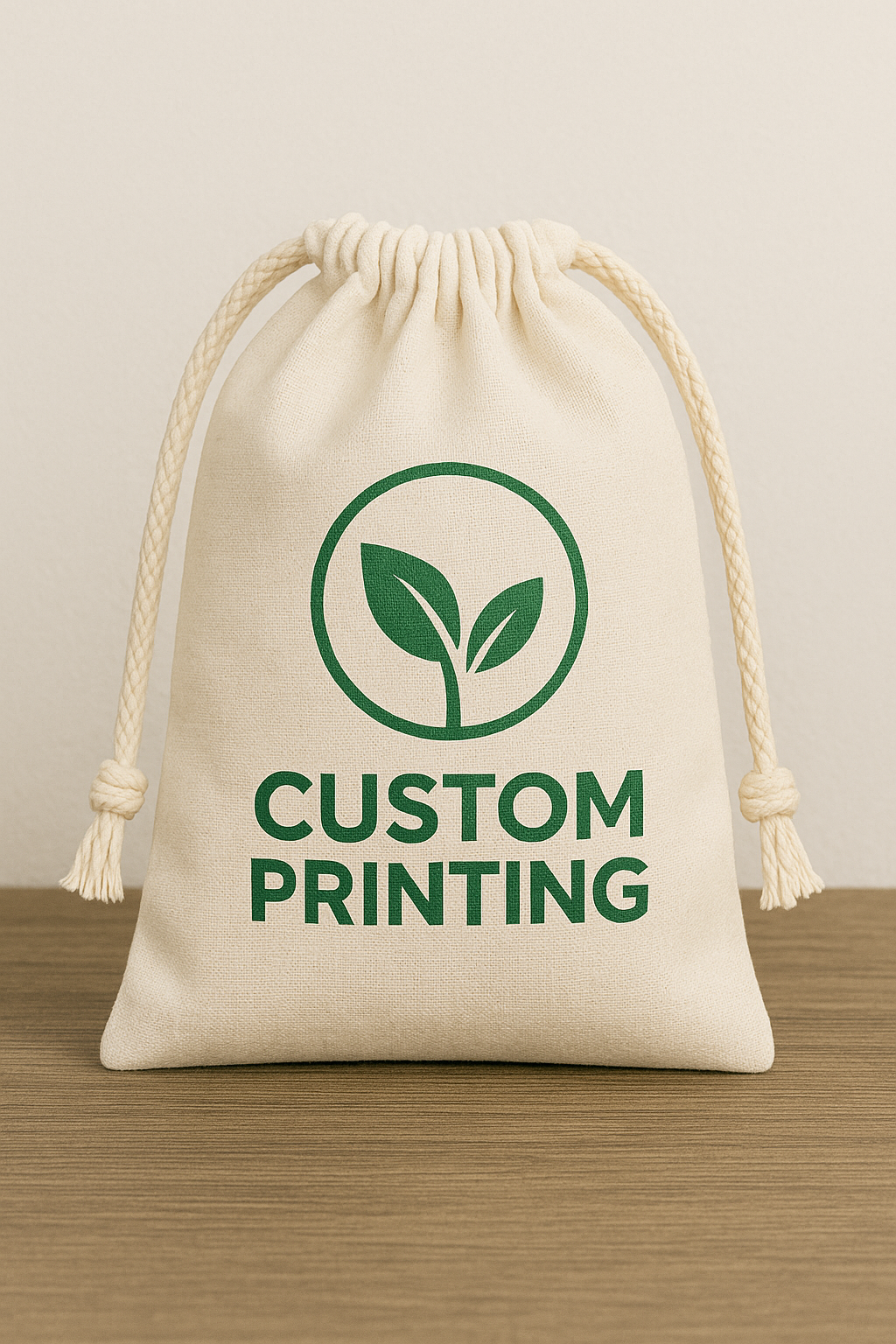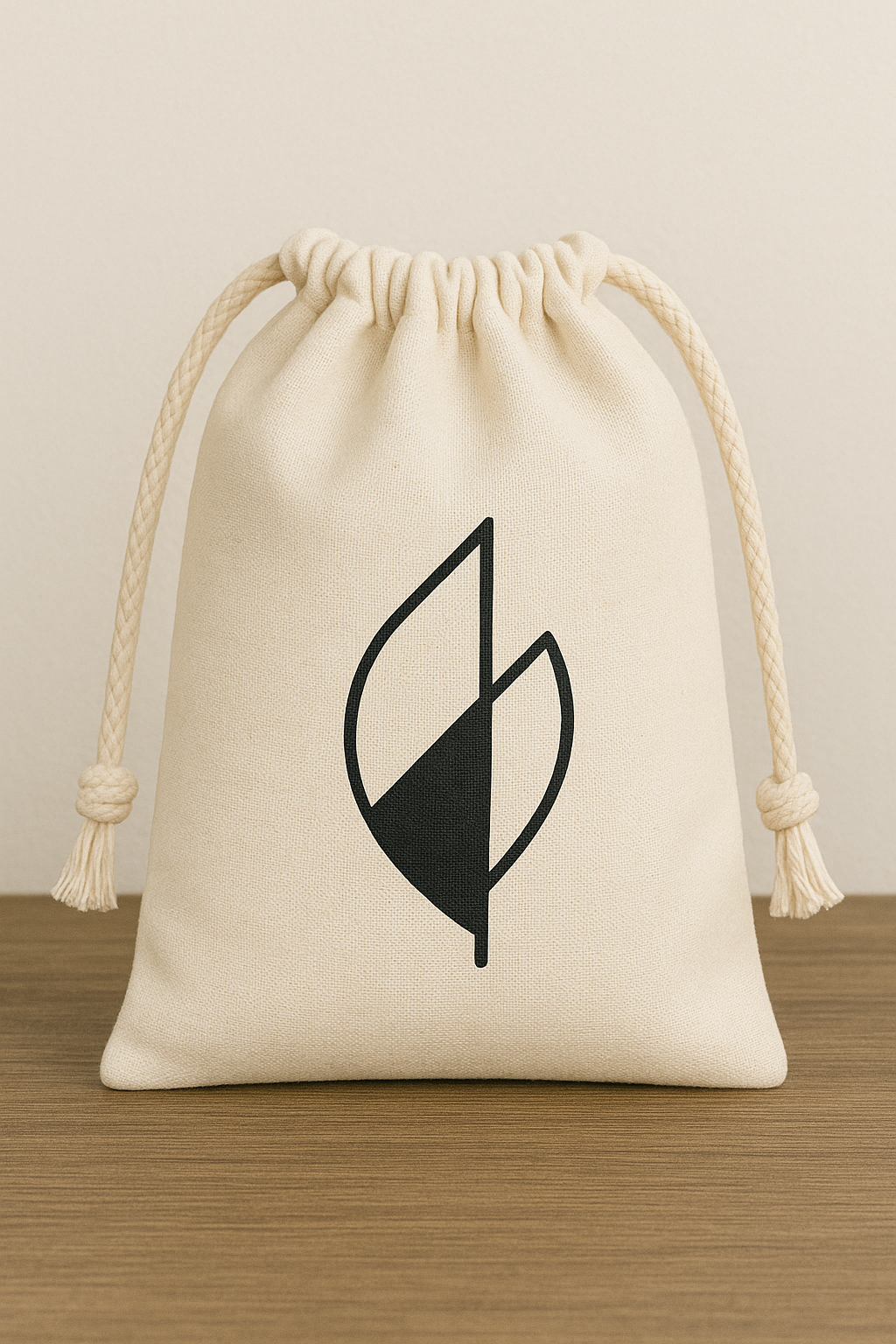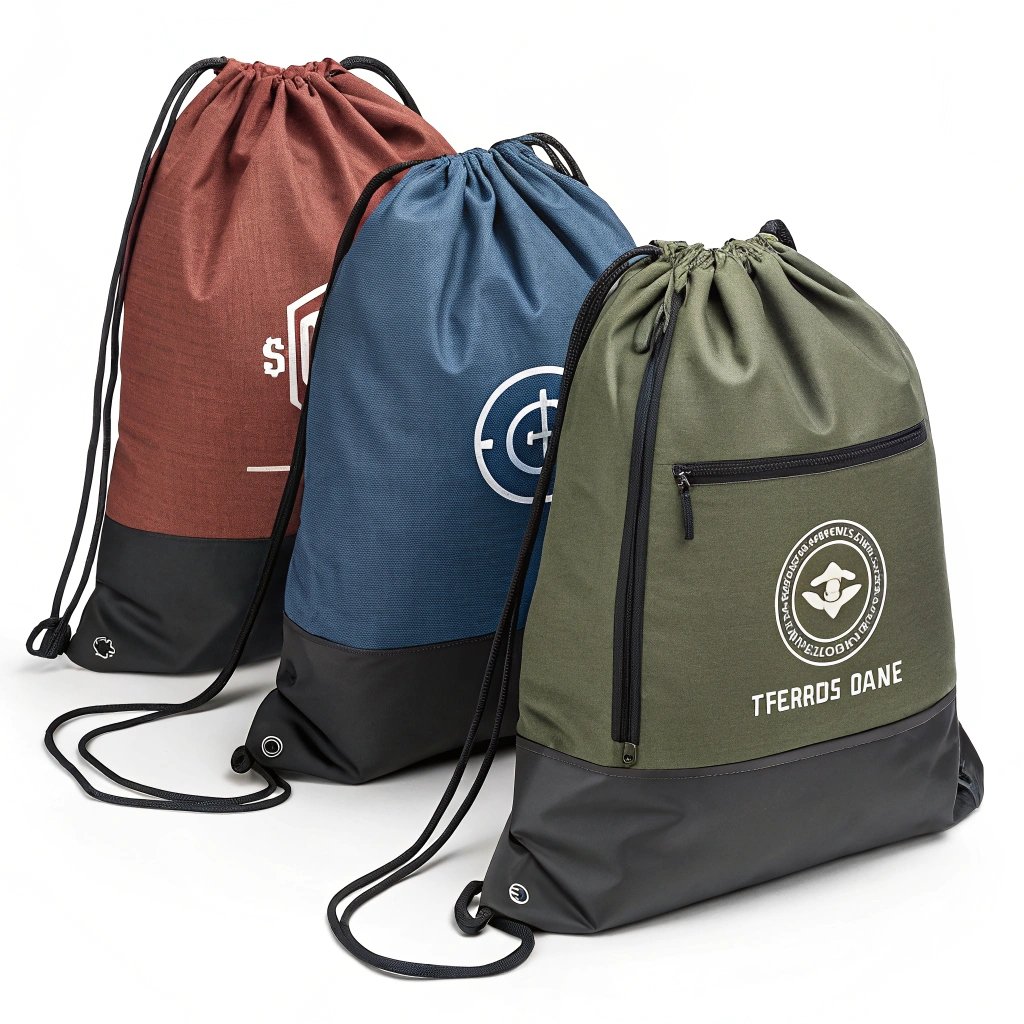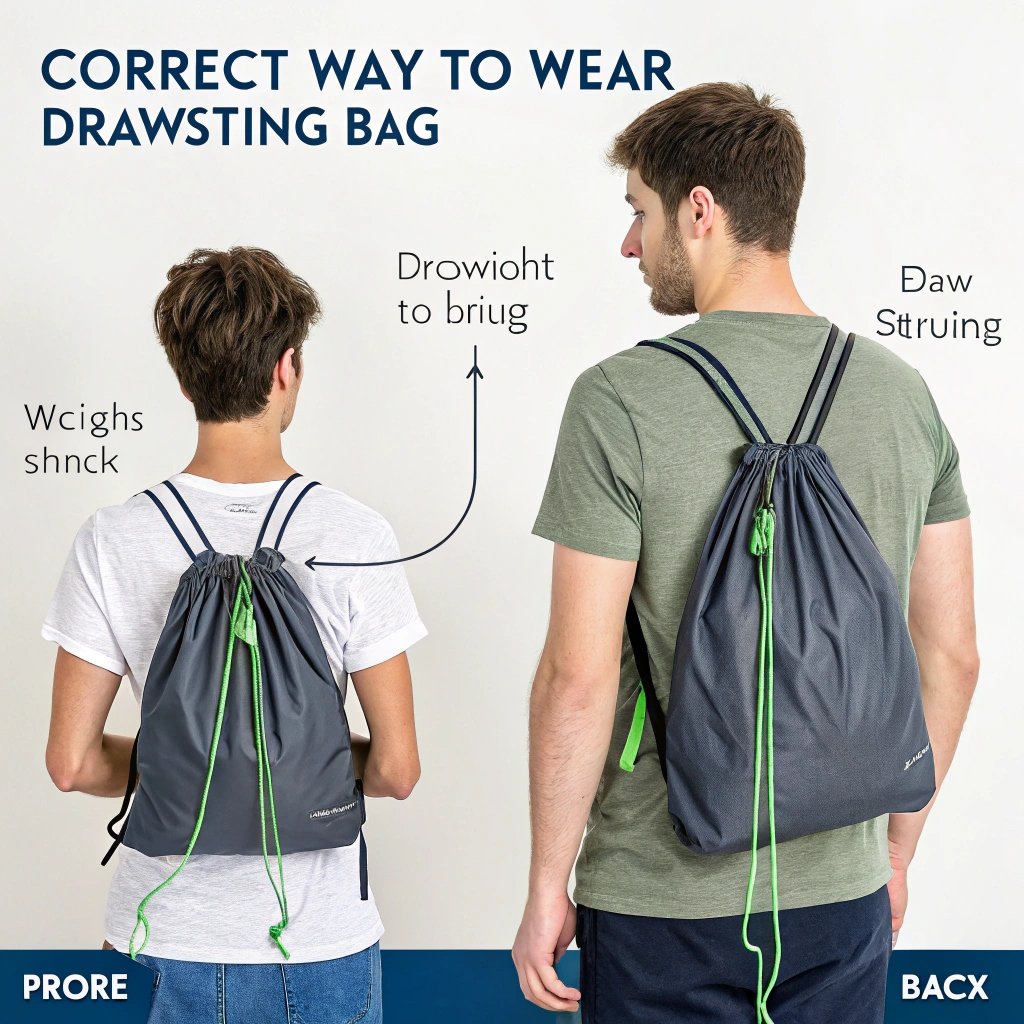I feel frustrated when I need one bag for everything but there’s none—it seems impossible to find a real all‑rounder.
A drawstring bag1 offers a lightweight, compact, and versatile carry solution for daily life.
Curious to learn why these simple bags stand out? Read on!
What Are Drawstring Bags? A Simple Design with Big Utility?
I had trouble carrying items in a tight space until I discovered these bags—they change everything.
A drawstring bag is a pouch with cords; pull strings to close, loosen to open—easy and efficient.
Dive Deeper
There is a quiet elegance in simplicity. The drawstring mechanism is intuitive. It keeps things secure. The bag is flat when empty, and yet it grows roomy when filled.
H3: How the Design Works
| Feature | Benefit |
|---|---|
| Drawcord top | Fast open/close, one‑hand use |
| Pouch body | Flexible capacity, compact storage |
These bags are made to adapt. They fit under seats, attach to hooks, or slide into lockers. I’m always impressed with the ease of stuffing them into tight spots. They slip into backpacks when empty to save space. I find that helpful whether at school or the gym.
I also find that the smooth lines of the design make them easy to brand or decorate. And because there’s not much stitching or hardware, they’re often more affordable than structured backpacks2.
Everyday Uses: Ideal for Gym, School, Travel, and More?
I used to carry bulky sports equipment and separate school bags. It wore me down.
Drawstring bags hold shoes, snacks, books, or toiletries in a quick, grab‑and‑go way.
Dive Deeper
Whether packing my gym clothes, school supplies, or travel essentials, one bag meets many needs.
H3: Use Cases
- Gym: shoes, towel, water bottle
- School: lunch box, pens, notebook
- Travel: chargers, headphones, travel documents
They are washable, so I don’t mind tossing post‑gym sweaty gear in. For travel, the bag doubles as laundry or souvenir catch‑all. I carried one through airports, and it replaced both a shopping bag and a small backpack.
The lightweight finish means it adds almost no weight to what I carry. That feels like freedom: no heaviness or bulk.
Drawstring bags are also cheap, making them ideal to give at events3 as freebies. Attendees love the practicality, and companies get great brand visibility. That’s why I see them at marathons, conferences, and store giveaways.
An Eco‑Friendly Option: Lightweight, Reusable, and Sustainable?
I felt guilty using single‑use bags until I switched to drawstring totes.
Made from reusable materials4, these bags are eco‑safe, reduce waste, and often use recycled fabrics.
Dive Deeper
My awareness of plastic waste led me to choose reusable options. Drawstring bags check many boxes.
H3: Environmental Benefits
| Feature | Impact |
|---|---|
| Reusable | Cuts single‑use plastic consumption |
| Lightweight | Lowers transport emissions |
| Recyclable fabrics | Supports circular economy |
Bags made of RPET5 or recycled polyester take plastic bottles and make something useful. Cotton and non‑woven alternatives are biodegradable or easier to recycle.
I carry one daily; I no longer need plastic grocery or fast‑food bags. When it’s dirty, I wash it. It dries fast due to its thin fabric. And because it folds small, I store it in my work bag, car, or an apron pocket.
I also bought them in bulk for corporate gifting at trade shows—it felt meaningful to give attendees a useful, green item. I even had customers thank me for offering a bag made from recycled plastic.
Material Comparison: Cotton, Non‑Woven, Polyester, or RPET?
I wondered which fabric gives the best value—so I tested several options.
Each fabric has its pluses: cotton is natural and soft, non‑woven is affordable, polyester is durable, RPET is green.
Dive Deeper
Here is how I compare them in real use:
H3: Material Breakdown
| Material | Pros | Cons |
|---|---|---|
| Cotton | Soft feel, biodegradable | Heavier, can shrink when washed |
| Non‑Woven | Cost‑effective, light | Less durable, tears under stress |
| Polyester | Strong, color‑fast, dries quickly | Petroleum‑based, less eco‑friendly |
| RPET | Green choice, durable, light | Slight plastic feel, higher cost |
I used cotton during cool weather to avoid the sheen of polyester. In sports, polyester dried quickly. For eco‑conscious events, RPET got positive remarks.
Each material affects the bag’s look, cost, and sustainability. I choose with both purpose and image in mind. For a premium feel, I sometimes combine cotton body with polyester piping.
Custom Printing for Events, Giveaways, and Brand Promotions?
I needed branded merch that felt useful, not just thrown‑away flyers.
Drawstring bags accept logos, text, and art using screen print, heat transfer, or embroidery—ideal for promotions.
Dive Deeper
I worked with suppliers to print logos on bags for fundraisers and company swag.
H3: Print Methods & Tips
| Method | Look & Feel | Best For |
|---|---|---|
| Screen printing | Bold, flat colors | Large runs, simple designs |
| Heat transfer | Full color, photo detail | Small batches, complex artwork |
| Embroidery | Textured, durable | Elite look, small logos |
I noticed screen print on cotton produces vibrant colors. Heat transfer looks great on polyester. Embroidery adds texture but costs more.
It’s important to check proofs and test wash batches. Ink needs to be washable and colorfast. I always order a sample before large runs. For larger events, these bags doubled as event kits—holding schedules, badges, pens—making attendees feel they were getting a gift, not just promotion.
Drawstring Bags vs. Other Bag Types: Which One Fits You Best?
I hesitated between backpacks, totes, and drawstring bags.
Compared to other bags, drawstring bags are lighter, quicker to use, and easier to store—but hold less volume.
Dive Deeper
Let’s weigh them side by side:
H3: Comparison Table
| Bag Type | Portability | Capacity | Usability |
|---|---|---|---|
| Drawstring | Excellent | Medium | Quick grab‑and‑go |
| Backpack | Good | Large | Good for heavy items |
| Tote | Good | Large | Stylish, less secure |
| Messenger | Good | Medium | Office‑oriented |
For gym clothes or small items, a drawstring bag is ideal. It’s not for heavy textbooks or full‑day travel—but that’s fine for where I use it. I still keep a structured backpack for work.
I appreciate how fast I can shift loads: slipping the drawstring bag out when I arrive, slipping it back in after I leave. The simplicity fits into my flexible daily routine.
Trendy Designs: Where Simplicity Meets Modern Aesthetics?
I thought simple meant boring—but then I saw designer drawstring bags.
Modern drawstring bags come in bold colors, prints, and minimalistic designs—blending style with function.
Dive Deeper
Design trends I’ve seen and liked:
- Color blocks with contrasting strings
- Minimal logos subtly placed
- Abstract prints for artsy looks
- Monochrome earth tones for eco vibes
I chose one in muted green with a thin white logo. It felt upscale. Another had an all‑over floral print that drew comments.
Because production is simple, small changes like color or strap style feel fresh. I’ve ordered matte drawcords, reflective accents, or hidden phone pockets—they’re still recognizable drawstring shapes, but more refined.
These bags fit my style—casual yet polished. They don’t dominate an outfit; they complement it.
What to Know Before Placing a Bulk Order?
I once rushed a bulk order—and it turned out badly.
Before ordering, define specs (size, material, print, quantity), request samples, check supplier certifications, and factor lead time.
Dive Deeper
Key steps when ordering:
H3: Bulk Order Checklist
| Step | Reason |
|---|---|
| Define size & fabric | Ensures bag does what you need |
| Ask for sample | Reveal print quality & feel |
| Check certifications | Confirms materials, safety, eco claims |
| Confirm lead time | Avoids delays before event |
| Negotiate price | Save on higher quantities |
I learned that small changes in fabric weight affect durability. I once ordered cheap non‑woven bags that tore—it cost more in reorders.
I now start with a sample order of 50 pieces. I verify size, print accuracy, and sewing quality. I check certifications such as BSCI or GRS when buying eco RPET. I also inspect packaging and labeling—especially for compliance in North America and Europe.
Finally, I build lead time cushion. Even though production might take two weeks, shipping may take longer. I always add one extra week to be safe.
Care and Maintenance Tips for Long‑Term Use?
I once ruined a bag by machine washing it.
Knowing the right wash, dry, and store methods can make drawstring bags last years.
Dive Deeper
Here is my care routine:
H3: Maintenance Guide
| Task | Best Practice |
|---|---|
| Washing | Use gentle machine cycle or hand wash cold |
| Detergent | Mild, no bleach to protect colors |
| Drying | Air dry, flat or hang—avoid dryer heat |
| Storage | Fold flat in drawer, avoid sun exposure |
| Repair | Patch small holes or reinforce stitch seams |
I always pre‑wash new bags to remove dust. After gym, I rinse sweaty fabric and air dry outdoors. If the bag is cotton, I hand wash. Polyester and RPET go in cold machine wash.
If strings slip, I knot the ends or use a lighter to fuse the cord. I repair tiny holes with fabric glue or needle and thread. That extra care means each bag stays usable for seasons.
I pass them on to friends when replacing them. Still, I keep older ones in the car for quick errands.
How to Order Custom Drawstring Bags Quickly and Easily?
I needed bags fast for an event—here’s how I did it.
Choose a supplier with clear customization tools, quick turnaround, free artwork check, and easy reorder features.
Dive Deeper
I use these steps for fast ordering:
H3: Fast Order Workflow
- Pick an online supplier with mock‑up tool
- Upload logo and choose bag specs
- Approve digital proof immediately
- Confirm production time and ask for express options
- Track shipment until delivery
I compare suppliers on Alibaba or Canton Fair showrooms. I pick one with 3–5 day sample turnaround. I keep my print file in vector format (.SVG or .EPS) for quality.
I always request a digital proof within 24 hours and make small changes. Once approved, I ask for production updates. If time is short, I opt for air shipping with tracking.
By following this, I can order 200 bags from China and receive them at a North American warehouse in two weeks. That speed makes drawstring bags powerful for last‑minute campaigns.
Conclusion
Drawstring bags are simple yet versatile, eco‑friendly, stylish, easy to brand, easy to care for, and ideal for bulk or quick orders.
Whether for daily use, corporate giveaways, or sustainable promotions, they offer practicality, visibility, adaptability, and value — truly the modern all‑rounder.
-
See why drawstring bags are popular for daily and multi‑purpose carry needs. ↩
-
Understand cost benefits compared to structured backpacks and similar alternatives. ↩
-
Learn how event planners use them as cheap, high‑impact promotional giveaways. ↩
-
Explore the eco‑benefits of reusable materials over single-use plastic. ↩
-
Discover how RPET fabric turns plastic waste into sustainable bag materials. ↩

